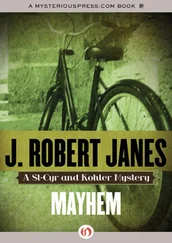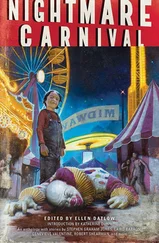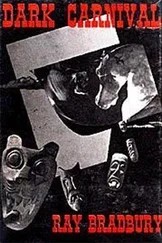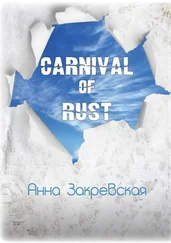J. Janes - Carnival
Здесь есть возможность читать онлайн «J. Janes - Carnival» весь текст электронной книги совершенно бесплатно (целиком полную версию без сокращений). В некоторых случаях можно слушать аудио, скачать через торрент в формате fb2 и присутствует краткое содержание. Год выпуска: 2014, Издательство: Open Road International Media, Жанр: Полицейский детектив, Исторический детектив, на английском языке. Описание произведения, (предисловие) а так же отзывы посетителей доступны на портале библиотеки ЛибКат.
- Название:Carnival
- Автор:
- Издательство:Open Road International Media
- Жанр:
- Год:2014
- ISBN:нет данных
- Рейтинг книги:5 / 5. Голосов: 1
-
Избранное:Добавить в избранное
- Отзывы:
-
Ваша оценка:
- 100
- 1
- 2
- 3
- 4
- 5
Carnival: краткое содержание, описание и аннотация
Предлагаем к чтению аннотацию, описание, краткое содержание или предисловие (зависит от того, что написал сам автор книги «Carnival»). Если вы не нашли необходимую информацию о книге — напишите в комментариях, мы постараемся отыскать её.
Carnival — читать онлайн бесплатно полную книгу (весь текст) целиком
Ниже представлен текст книги, разбитый по страницам. Система сохранения места последней прочитанной страницы, позволяет с удобством читать онлайн бесплатно книгу «Carnival», без необходимости каждый раз заново искать на чём Вы остановились. Поставьте закладку, и сможете в любой момент перейти на страницу, на которой закончили чтение.
Интервал:
Закладка:
J. Robert Janes
Carnival
1
For some time now the train had been stopped in a cutting to the west of Belfort, in the Vosges Mountains and still in France. Crammed in on the hard wooden bench of wartime, Kohler ached for a cigarette. Mein Gott , had it been an hour of silence already? All lights, no matter how tiny and scarce tobacco was, had been forbidden. Louis, he knew, longed to sigh and drolly say, C’est une attaque aerienne, mesdames et messieurs , but soon they’d cross the frontier into Alsace, now the Greater Third Reich, soon Louis would have to be constantly reminded that speaking French in public was verboten .
It didn’t bear thinking about, their being sent on this investigation, this ‘ Karneval. ’ With the heat, the overcoats and the crowding, misery was compounded but ach , no one complained in a coach full of Waffen-SS-a Sonderkommando , a ‘special’ commando. One simply did as ordered.
‘ Raus, Alles .’ Get out, all of you, croaked the sergeant-conductor. The snow, a metre or more deep in places, was pristine under a full moon and not a cloud up there, just stars like you’d never seen, except for the low and throaty drone of aircraft. The RAF at 9.05 p.m. Berlin Time, 7 February 1943, one hour of daylight saving time in winter, two in summer!
In single file everyone headed up into the adjacent woods to the smell of spruce trees and their enclosing darkness. ‘ Merde , this is idiocy,’ swore Louis. ‘We’re not the target. We’re in just as much, if not far more danger out here than in that damned train. Thirty degrees of frost and my shoes … I’ve no overboots!’
There had been no time to beg stores for replacements and receive the uncaring shrug of the scarcities. From Vichy to Paris, the train had taken over nine hours, instead of four. From Paris, they had had to take the southernmost route, changing to a secondary line at Dijon, due exactly to the threat of what was steadily drawing close.
Clear under the moon, the train huddled between shoulders of bare rock and walls of freshly ploughed drift. Two locomotives, one of them a booster for the grades the Vosges offered, had coal tenders and good stuff too. Little of it seen in Paris and other cities and towns in France since the late autumn of 1940, except for the chosen, the collabos and BOFs, the butter, eggs and cheese racketeers, the big shots too, the Bonzen and Oberbonzen , the ‘Gold Pheasants’ back home in the Reich because of all the medals and braid they wore.
A flatbed with mounted 20mm Oerliken anti-aircraft gun and MG42 machine guns, courtesy of the Luftwaffe, was operated by them, but they, too, had been ordered to vacate their posts. Treasonable behaviour to the diehards, but best not to attract unnecessary attention by raising up a stream of flak. Valuable cargo on board. Artwork, oil paintings, Old Masters, coins, antique furniture, carpets and porcelains. Liebe Zeit , the stuff that had been pouring out of France.
Behind the guns were the first-class coaches, behind these, two seconds, one third-, and a fourth-, all vacated, all with their passengers fighting their way up into the forest. Crazy, really. Louis was absolutely right.
A baggage truck and then two goods trucks followed, and lastly a closed, sealed truck bearing the large, crudely painted white letters N und N, and the chalked words: KEIN ESSEN, KEIN AUSGANG. No food, no exit. No going out.
Kohler knew Louis would be watching that final railway truck. As the sound of the aircraft grew, the bombers began shy; to pass before the moon. First came the pathfinders, then the others. Closing the gap between himself and his partner, he tugged at a sleeve. The aircraft, having begun their descent for the run-in, were probably at an altitude of 4,000 metres. There’d be a 1,000- or 2,000-kilogram bomb in each, and at least 5,000 kilograms of incendiaries, since it was a night raid and a little light would be appreciated just as it had been and still was over London and other British cities shy; and towns, and that, too, was really crazy. Elsewhere, too, especially in Russia, Poland having been flattened in September shy; of ’39.
No clamouring for escape came from inside the N-und-N truck. Not a sound, but how could anyone treat another human being like that? ‘Where the hell are they taking them, Louis, since we’re going in the same direction?’
The Nacht-und-Nebel Erlass people, those taken by the Night and Fog Decree. ‘Are they all dead, Hermann? Have they frozen?’ came the whisper.
‘ Ach , they’re listening, just as we are.’
Hermann didn’t like it any more than he did, thought St-Cyr. They had both been in the Great War, on opposite sides, had had enough of the insanity and had intuitively understood this when they’d first met in September 1940 and had begun to work together. Two detectives, one from each side and fighting common crime, but known, too, for their steadfast honesty in an age of officially sanctioned crime on a horrendous scale.
‘Stuttgart,’ called out someone. ‘Lancasters.’
Louis nodded toward the truck and softly confided, ‘There’s a loose board up near the roof. One of them is pushing it while peering skyward. He’s letting them know what’s up.’
‘Us too,’ breathed Kohler sadly, but the N und N unfortunate shy;-mostly these were resistants , suspected or otherwise, and their clandestine wireless operators and female couriers-didn’t add, as many now dared to hope, that someday Herr Hitler was going to get his.
After another twenty minutes, in which the frost made the needles of the spruce as stiff as barbed wire, they filed slowly back into the train, each alone with their thoughts, Louis and himself with the telex they had received from Gestapo Boemelburg in Paris: Karneval. Kolmar. Contact Kommandant Rasche. Hangings. Apparent suicides. Stalag XIV J Arbeitslager 13 Elsass .
Suicides, muttered St-Cyr to himself, turning to stare bleakly at the blue-washed window as the coach began to move. Hermann had been a prisoner of war in France from 17 July 1916 until well after the Armistice of 11 November 1918 and had fought in Alsace in the winter of ’14-’15 under brutal conditions. He’d been transferred to a bomb disposal unit-some impulsive act of insubordination yet to be confided-and had, after his little sojourn with the trip-to-heaven boys, commanded a battery of field guns at Verdun, early in 1916. ‘Big stuff,’ he would always apologetically say, for this partner of his had been repeatedly subjected to it and, yes, God did do things like that. He’d been taken prisoner during one of the battles for the Somme and had learned to speak and write French while a POW but couldn’t have known that in twenty- shy;two years he’d have a partner to watch over and that his facility shy; with the language had been what had brought them together. ‘Destiny. Pure chance too,’ he’d say with a snort, but chance so often meant everything these days and the irony shy; was that they really did get on. Small arguments-mere differences of opinion. Bien sur , the Bavarians were a stubborn lot and God must have dug deeply into the top hat to produce one of its stubbornest, but nothing serious even though Hermann shy; was a Gestapo and had been tarred with that brush. ‘Assimilated,’ he’d say. ‘Conscripted without a chance to refuse,’ but could Boemelburg, his boss, have assigned shy; them to this Karneval simply because Hermann would not only know the terrain, but that of a POW camp, or had there been that other reason?
Hated and reviled by many in the Paris SS and Gestapo, and those elsewhere in France, for always pointing the finger of truth where it belonged, were they now to be ‘taught’ a final lesson?
Читать дальшеИнтервал:
Закладка:
Похожие книги на «Carnival»
Представляем Вашему вниманию похожие книги на «Carnival» списком для выбора. Мы отобрали схожую по названию и смыслу литературу в надежде предоставить читателям больше вариантов отыскать новые, интересные, ещё непрочитанные произведения.
Обсуждение, отзывы о книге «Carnival» и просто собственные мнения читателей. Оставьте ваши комментарии, напишите, что Вы думаете о произведении, его смысле или главных героях. Укажите что конкретно понравилось, а что нет, и почему Вы так считаете.












